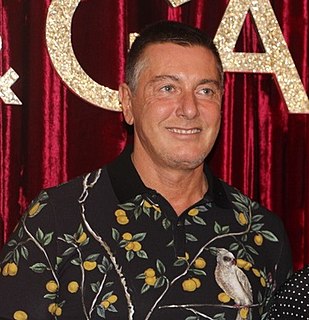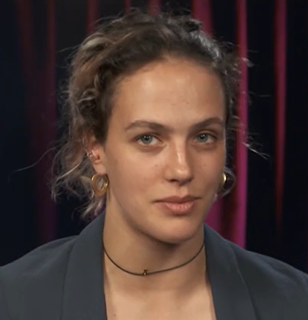A Quote by Wilhelm Wundt
Many psychologists ... thought by turning their attention to their own consciousness to be able to explain what happened when we were thnking. Or they sought to attain the same end by asking another person a question, by means of which certain processes of thought would be excited, and then by questioning the person about the introspection he had made. It is obvious ... that nothing can be discovered in such experiments.
Related Quotes
It was not the case that one thing morphed into another, child into woman. You remained the person you were before things happened to you. The person you were when you thought a small cut string could determine the course of a year. You also became the person to whom certain things happened. Who passed into the realm where you no longer questioned the notion of being trapped in one form. You took on that form, that identity, hoped for its recognition from others, hoped someone would love it and you.
I never thought of myself as a wealthy person. I've thought of myself as a person who has had a lot of luck. I don't have the same stress that other people have, but there are too many things I could have done differently if wealth was what I was after. If I was all about money, I would have lived in L.A.
God sent Jesus to join the human experience, which means to make a lot of mistakes. Jesus didn't arrive here knowing how to walk. He had fingers and toes, confusion, sexual feelings, crazy human internal processes. He had the same prejudices as the rest of his tribe: he had to learn that the Canaanite woman was a person. He had to suffer the hardships and tedium and setbacks of being a regular person. If he hadn't the incarnation would mean nothing.
I think back to some of the pots we made when we first started our pottery, and they were pretty awful pots. We thought at the time they were good; they were the best we could make, but our thinking was so elemental that the pots had that quality also, and so they don't have a richness about them which I look for in my work today. Whether I achieve it all the time, that's another question, because I don't think a person can produce at top level 100 percent of the time.
A dialogue is very important. It is a form of communication in which question and answer continue till a question is left without an answer. Thus the question is suspended between the two persons involved in this answer and question. It is like a bud with untouched blossoms . . . If the question is left totally untouched by thought, it then has its own answer because the questioner and answerer, as persons, have disappeared. This is a form of dialogue in which investigation reaches a certain point of intensity and depth, which then has a quality that thought can never reach.
Then there is the further question of what is the relationship of thinking to reality. As careful attention shows, thought itself is in an actual process of movement. That is to say, one can feel a sense of flow in the stream of consciousness not dissimilar to the sense of flow in the movement of matter in general. May not thought itself thus be a part of reality as a whole? But then, what could it mean for one part of reality to 'know' another, and to what extent would this be possible?
I thought that I had found something new. But then I convinced myself that the Abbot Gregor Mendel in Brünn, had, during the sixties, not only obtained the same result through extensive experiments with peas, which lasted for many years, as did de Vries and I, but had also given exactly the same explanation, as far as that was possible in 1866.
Summer romances cometo an end. That was part of the deal. They are built like certain plants or insects, not able to survive more than one season. I thought we would be different. We were, I guess, but not in the way I thought. I truly believed that we would never let each other go. The young are so dumb.
What I really learned from Tim Burton is that it's important to have your own person in a role because you can't play a character unless there are elements of human behaviour that you yourself understand. I was really struck by how Tim Burton would like to sit and chat about you... or question things which then you had never thought about. It is a good thing to always step back a bit with things like that. But I try my damned hardest to learn something from everything I do.






































